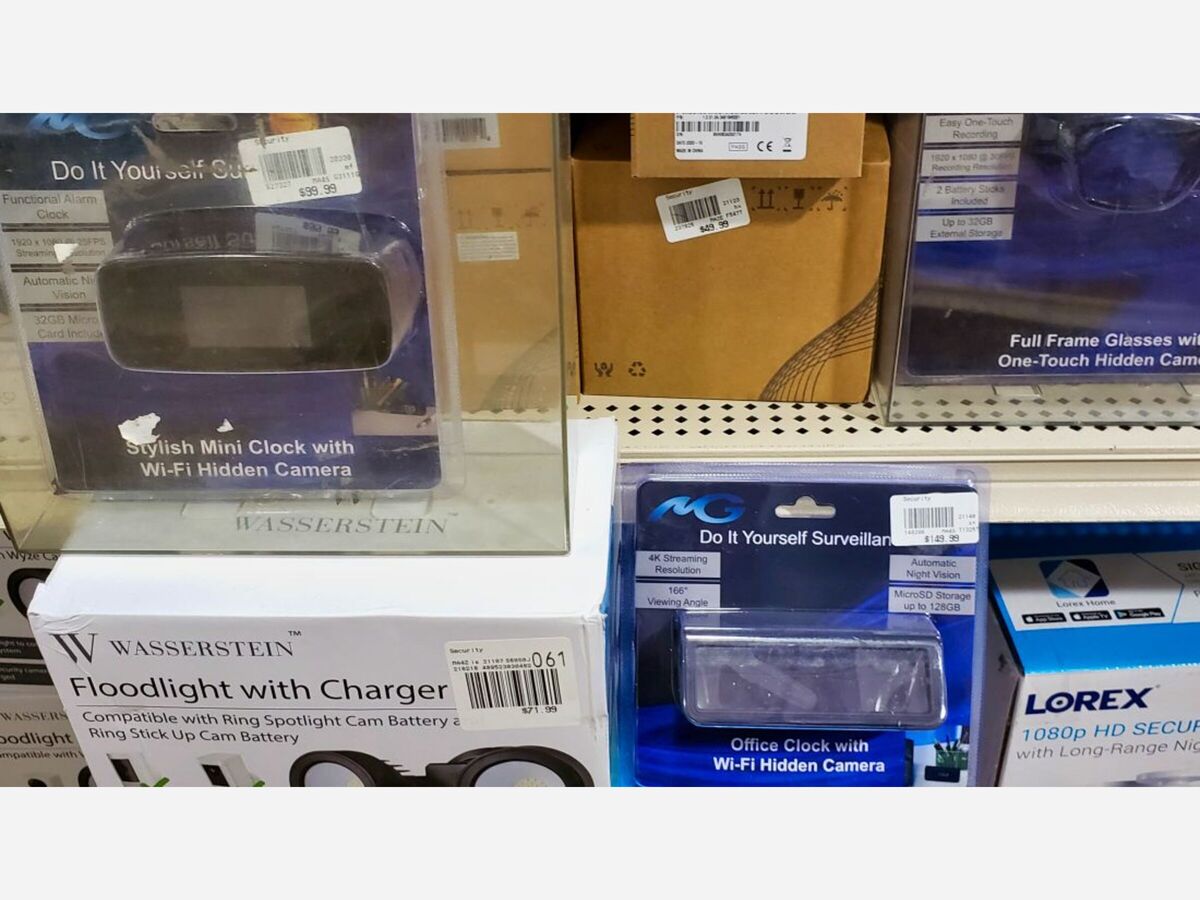Image


A frequent question posed to elder law attorneys is whether it's legal to place a hidden camera in the room of a loved one, while an aide cares for them. An example of "hidden cameras" available to consumers is the photo above-showing cameras concealed within in alarm clocks and other devices, available for purchase at Micro Center in St. Davids, PA.
If mom or dad is living in an institution defined as a "personal care home" there is an absolute right to place a camera in their room, so long as it does not record anything about a roommate who has not given permission. Pennsylvania regulations governing personal care homes make that an absolute right under section 2600.42(s). Recognizing that it may be impossible not to record roommates in some situations, the regulations mandate permission of other residents of a shared room. However, it is not necessary to obtain the permission of either the staff or the owners of the personal care home. Recording audio, however, is a different matter.
The distinction between recording sound and video is a direct result of an oddity in the Pennsylvania Wiretap law. The laws were enacted in the 1970s, and that was decades before consumers could purchase a small video camera. Although it is a third-degree felony for most private citizens to intercept audio without the consent of the other party in Pennsylvania, that may not apply to video.
But what about the case where a family hires a caretaker for someone who is living in their own home? Would it infringe upon the caregiver's reasonable expectation of privacy to install a hidden camera? What if the camera also records audio?
The Pennsylvania Supreme Court decided these issues in a ruling published on March 25, 2021. The case involved a nanny, caring for children in the home of a family that employed her. The children complained to their parents about her conduct when she was alone with them. The parents placed a hidden camera in the children's bedroom that captured both sound and video. At one point the camera recorded the caretaker yelling at one child, and it also seemed to capture the sound of the caretaker striking a child. The parents turned the video over to the local police, who then charged the nanny with assault and battery. At trial, however, the court had to decide whether or not the audio recordings taken by the camera were admissible in court. Although the court did not expressly say so, we might presume that the actions took place outside the viewing area of the video and the police had to rely solely on the audio recording. Then, as you might expect from a lawyer, the prosecutor argued that even if the audio of the nanny yelling at the children was inadmissible, the sound of the caretaker actually striking the children (the "hitting sounds") was not a "conversation" and that part of the recording was admissible evidence. The Pennsylvania Superior Court grappled with the problem and a divided court held the evidence must be excluded. The prosecutor then appealed to the Pennsylvania Supreme Court.
The Pennsylvania Supreme Court reversed, saying that nobody in the courts below properly read the Pa. Wiretap Law. The Pennsylvania Supreme Court said the law only applies when there is a reasonable expectation that the speaker's oral communications would not be recorded. The court further held that no nanny taking care of someone in the client's home has a reasonable expectation that their statements will not be recorded. The court recognized that employees have a reasonable expectation of privacy in many areas where they work, and a guest in someone's home has a reasonable expectation of privacy, but a nanny caring for children has no expectation of privacy in the sleeping area of a child.
The court noted that "nanny cams" have become so prevalent in our society that no caretaker can assume one is not present. The very fact that these cameras are called "nanny cams" puts one on notice of their use. Therefore, there is a limited exception that allows audio recording in a children's bedroom without violating the state's wiretap laws.
Although this case applies to children's bedrooms, we might also conclude that it applies to the bedroom of an adult. Therefore, the adult caregiver probably has no expectation of privacy as to both audio and video. However, since illegal recording is a third-degree felony in Pennsylvania, you may want to proceed with caution.
Considering the lack of any consensus by the courts, and the strong dissenting opinions, there is always the chance the court may limit the exceptions to the wiretap law to areas where children sleep. Therefore, it would be a very good idea to notify any caregiver for adults, before you hire them, that there may be a hidden nannycam on the premises at your sole discretion, and they may not have an expectation of privacy. Then, obtain their signature on that statement.
Even though you may not be charged with a third-degree felony for recording, you may lose some caregivers who object to that as an invasion of their privacy. It is an individual choice depending on the facts and circumstances of each case. If you are supervising the care of a competent adult, of course, you must also get their permission to record.
If you employ an aide to care for someone, you should always check with neighbors to ask whether they see anything unusual that should cause you concern. They may provide better information than any camera.
tags: housing, law